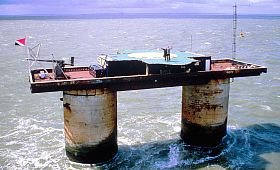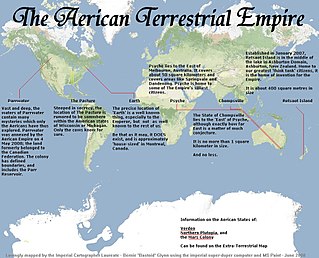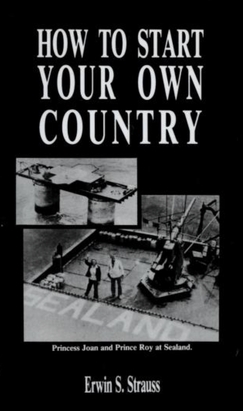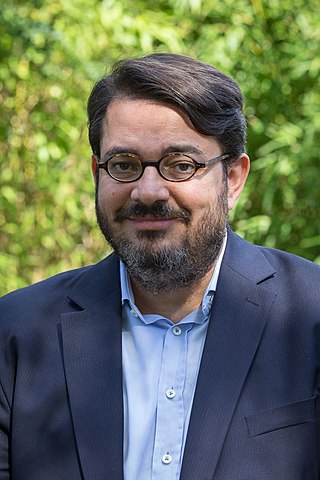
A micronation is a political entity whose representatives claim that they belong to an independent nation or sovereign state, but which lacks legal recognition by any sovereign state. Micronations are classified separately from de facto states and quasi-states; they are also not considered to be autonomous or self-governing as they lack the legal basis in international law for their existence. The activities of micronations are almost always trivial enough to be ignored rather than disputed by the established nations whose territory they claim—referred to in micronationalism as macronations. Several micronations have issued coins, flags, postage stamps, passports, medals and other state-related items, some as a source of revenue. Motivations for the creation of micronations include theoretical experimentation, political protest, artistic expression, personal entertainment and the conduct of criminal activity. The study of micronationalism is known as micropatriology or micropatrology.

The Empire of Atlantium is a micronation and secular, pluralist progressive lobby group based in New South Wales, Australia.
The Principality of Marlborough was a short-lived micronation established in 1993 located at 22°30′18.19″S149°9′6.45″E near Marlborough, Queensland, Australia, about 106 km (66 mi) north of Rockhampton.

The Gay and Lesbian Kingdom of the Coral Sea Islands was a putative micronation established as a symbolic political protest by a group of gay rights activists based in Australia. Declared in June 2004 in response to the introduction of a government bill to the Australian Parliament in May 2004 that codified the heterosexual definition of marriage, the Kingdom was founded on Australia's external overseas territory of the Coral Sea Islands, a group of uninhabited islets east of the Great Barrier Reef. The Kingdom was dissolved on 17 November 2017 following the "Yes" vote in the Australian Marriage Law Postal Survey legalising same-sex marriage.

The Aerican Empire, conventionally referred to in short form as Aerica, is a social organization and self-proclaimed micronation, founded in May 1987. Its name stems from the term "American Empire". In 2000 The New York Times described its website as "one of the more imaginative" micronation sites.
The Kingdom of Vikesland was a micronation in Manitoba, Canada. It was founded in 2005 by Christopher Barry Joseph Beyette, a television news cameraman employed by the CHUM network.

Micronations: The Lonely Planet Guide to Home-Made Nations is an Australian gazetteer about micronations, published in September 2006 by Lonely Planet. It was written by John Ryan, George Dunford and Simon Sellars. Self-described as a humorous guidebook and written in a light-hearted tone, the book's profile of micronations offers information on their flags, leaders, currencies, maps and other facts. It was re-subtitled Guide to Self-Proclaimed Nations in later publications.

Akhzivland is a micronation between Nahariya and the Lebanese border on the Israeli west coast, founded by Eli Avivi in 1971. The micronation is promoted by the Israel Ministry of Tourism.
The Principality of Wy is a claimed micronation in Australia that is located in the Sydney suburb of Mosman.

The Grand Duchy of Flandrensis is a micronation with claims over some territories of Antarctica, which was founded in 2008 by the Belgian Niels Vermeersch. Flandrensis is not recognised by any country or government, nor is it their intention to get diplomatic recognition. Since 2021 the micronation is registered in Belgium as the environmental non-profit organization “vzw Groothertogdom Flandrensis”.
MicroCon is a biennial summit or conference of micronationalists held in every other year since April 11, 2015. The event was created by Kevin Baugh of the Republic of Molossia, and every summit since has been hosted by a different micronation. MicroCon is a significant event in the micronational community, serving as a venue for exchanging ideas between micronationalists. The event has also been compared to the micronational equivalent of a session of the United Nations General Assembly. The largest edition, MicroCon 2019 in Hamilton, Ontario, Canada, had 113 attendees from 43 micronations. MicroCon 2023 was the first edition to consist of two separate events: an American summit in Joliet, Illinois, and a European summit in Ypres, Belgium.

The Principality of Snake Hill, also known simply as Snake Hill is a self-proclaimed independent sovereign state (micronation), located near Mudgee in New South Wales, Australia. Snake Hill has roughly hundreds of citizens, and claims land the size of Monaco. Snake Hill claimed independence on 2 September 2003, and Princess Paula claimed it was a right to secede, citing "The U.S., as you well know, seceded from England in 1776, It’s a remedial right, a last resort."

The Antarctic Micronational Union (AMU) is an intermicronational organization that aims to regulate micronational claims in Antarctica. The purpose of the AMU is to protect the claims of its members against other claimants.

MicroWiki is a free online encyclopedia about micronations launched in 2005. It has since become the principal way in which Internet users document micronational matters, as most do not meet Wikipedia's notability requirements. It is maintained by volunteers using the same MediaWiki software as Wikipedia. MicroWiki describes itself as "the largest encyclopedia about micronations".

Micronations and the Search for Sovereignty is a 2021 book by Australian constitutional law specialists Harry Hobbs and George Williams about micronations and their legal status. Written from an academic perspective, it is one of few works on micronational movements and the earliest-published book to focus largely on the legal aspect of micronations. The book concerns the definition of statehood, the place of micronations within international law, people's motivations for declaring them, the micronational community and the ways by which such entities mimic sovereign states. In 2022 Hobbs and Williams published a book for a broader audience, How to Rule Your Own Country: The Weird and Wonderful World of Micronations.

How to Start Your Own Country is a 2010 Canadian documentary film directed by Jody Shapiro and written by Shapiro and Denis Seguin. Produced by Phyllis Laing and Shapiro, the film explores various aspects of micronationalism and features interviews with several prominent micronationalists. The production studios for the film are Buffalo Gal Pictures and Everyday Pictures. How to Start Your Own Country had its world premiere at the 35th Toronto International Film Festival on 10 September 2010.

How to Start Your Own Country is an American non-fiction book written by Erwin S. Strauss about micronationalism, particularly its application to libertarianism and individualism. Strauss, who holds libertarian views, believes in the abolition of the power of the state. In How to Start Your Own Country, Strauss introduces five approaches that micronations may take in an attempt to achieve statehood, and documents various micronations and their mostly unsuccessful attempts at seceding. The first book published about micronations, How to Start Your Own Country was published in 1979, with subsequent editions in 1984 by Loompanics and in 1999 by Paladin Press. The book was well-received by critics.

Although the academic study of micronations—known as micropatriology—is limited, there have nevertheless been a number of published works on the subject. The following is a list documenting these written works. This list does not contain works wherein micronationalism is the secondary theme, such as reference works which contain or make references to micronations and books about individual micronations.
















